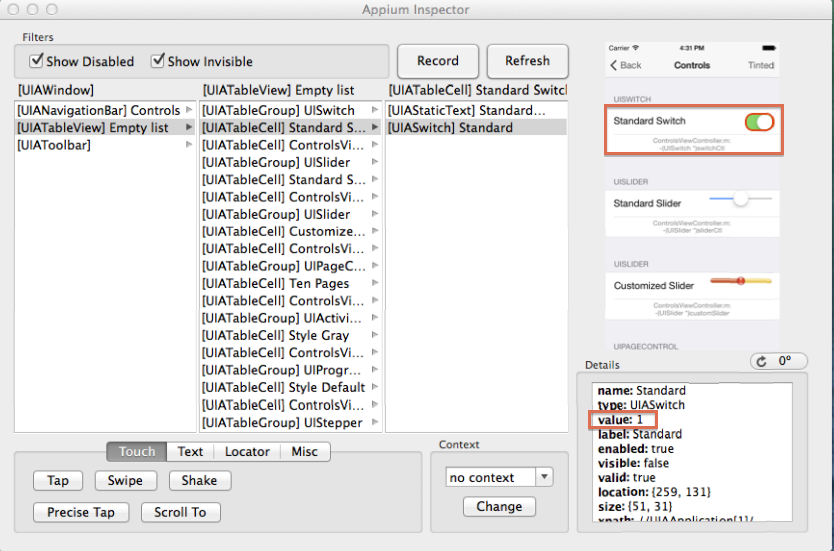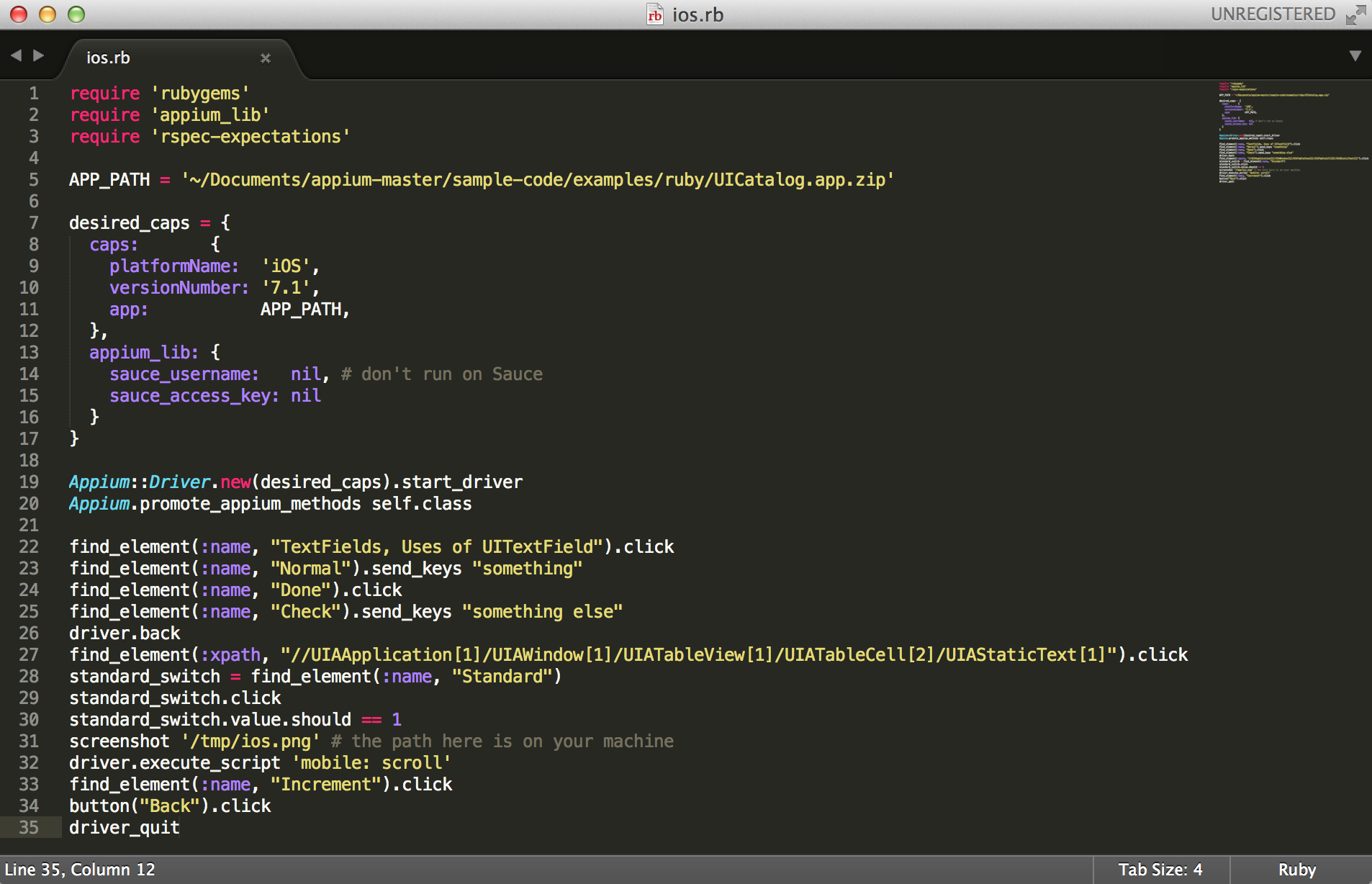- About the author
- Questions and Issues
- Edit and Contribute
- Introduction
- 1. Environment Setup
- 2. Execute appium demos of iOS and Android
-
3. Use appium inspector and similar tool to locate element and record script
- 3.1. Tools needed
- 3.2. Precondition of using inspector and recording script for iOS
- 3.3. Use appium inspector to locate iOS element and record script
- 3.4. Precondition of using inspector and recording script for Android
- 3.5. Use appium inspector to locate Android element and record script
- 3.6. Use uiautomatorviewer to locate Android element
- 3.7. Use Genymotion instead of Android AVD for emulator
- 4. Write script for iOS app
- 5. Migrate iOS script into Cucumber features
- 6. Write script for Android app
- 7. Migrate Android script into Cucumber features
- Generated using GitBook
Add assertion
In test script, an important stpe is to assert/verify result.
To support assertion, we need to import 'rspec-expectations' on top of our script:
require 'rubygems'
require 'appium_lib'
require 'rspec-expectations'
And in the steps, we can add an assertion to check the status of "Standard Switch" after turning it on.
standard_switch = find_element(:name, "Standard")
standard_switch.click
standard_switch.value.should == 1
Here we also did some small modifications to existing by extract the element.
And we get the expected value of it from inspector as well:

Now the script should look like:
require 'rubygems'
require 'appium_lib'
require 'rspec-expectations'
APP_PATH = '~/Documents/appium-master/sample-code/examples/ruby/UICatalog.app.zip'
desired_caps = {
caps: {
platformName: 'iOS',
versionNumber: '7.1',
app: APP_PATH,
},
appium_lib: {
sauce_username: nil, # don't run on Sauce
sauce_access_key: nil
}
}
Appium::Driver.new(desired_caps).start_driver
Appium.promote_appium_methods self.class
find_element(:name, "TextFields, Uses of UITextField").click
find_element(:name, "Normal").send_keys "something"
find_element(:name, "Done").click
find_element(:name, "Check").send_keys "something else"
driver.back
find_element(:xpath, "//UIAApplication[1]/UIAWindow[1]/UIATableView[1]/UIATableCell[2]/UIAStaticText[1]").click
standard_switch = find_element(:name, "Standard")
standard_switch.click
standard_switch.value.should == 1
screenshot '/tmp/ios.png' # the path here is on your machine
driver.execute_script 'mobile: scroll'
find_element(:name, "Increment").click
button("Back").click
driver_quit

You can refer to the iOS script from here.
We will migrate this script to Cucumber feature in next chapter.